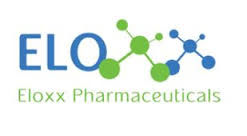预约演示
更新于:2025-05-07
p53 x Bcl-2
更新于:2025-05-07
关联
2
项与 p53 x Bcl-2 相关的药物作用机制 Bcl-2抑制剂 [+2] |
在研机构- |
在研适应症- |
非在研适应症 |
最高研发阶段无进展 |
首次获批国家/地区- |
首次获批日期1800-01-20 |
作用机制 BCL2基因抑制剂 [+1] |
在研机构- |
在研适应症- |
非在研适应症 |
最高研发阶段无进展 |
首次获批国家/地区- |
首次获批日期1800-01-20 |
100 项与 p53 x Bcl-2 相关的临床结果
登录后查看更多信息
100 项与 p53 x Bcl-2 相关的转化医学
登录后查看更多信息
0 项与 p53 x Bcl-2 相关的专利(医药)
登录后查看更多信息
13,020
项与 p53 x Bcl-2 相关的文献(医药)2025-12-01·Molecular Biology Reports
Cytotoxic activity of silver nanoparticles prepared by eco-friendly synthesis using Lythrum salicaria extract on breast cancer cells
Article
作者: Shandiz, Seyed Ataollah Sadat ; Haghani, Babak ; Rezaei, Niloufar ; Baghbani-Arani, Fahimeh ; Hashemi, Atieh
2025-12-01·Molecular Biology Reports
Aqueous and ethanolic extracts of Moringa oleifera leaves induce selective cytotoxicity in Raji and Jurkat cell lines by activating the P21 pathway independent of P53
Article
作者: Rajabi, Leila ; Ebrahimdoost, Mostafa ; Soleimani Samarkhazan, Hamed ; Aghaei, Mojtaba ; Mohammadi, Seyed Amin ; Khamisipour, Gholamreza
2025-12-01·Molecular Biology Reports
Epsilon toxin induces cytotoxicity by mediating autophagy and apoptosis via the PI3K/AKT/mTOR signaling pathway in A549 cells
Article
作者: Mirhosseini, Seyed Ali ; Hosseini, Hamideh Mahmoodzadeh ; Dashti, Ayat
303
项与 p53 x Bcl-2 相关的新闻(医药)2025-04-29
·药智网
美国临床肿瘤学会(ASCO)年会是全球规模最大、学术水平最高、最具权威性的临床肿瘤学会议,会议汇集了众多世界一流的肿瘤学专家、患者倡导者和工业界代表,共同分享探讨当前国际最前沿的临床肿瘤学科研成果和肿瘤治疗技术,推动肿瘤学领域的科学进步。今年的ASCO年会将于5月30日到6月3日在芝加哥举办。据官方统计,本次ASCO年会预计开展场次超200场,涵盖24场口头摘要专场(Oral Abstract Session)、2700篇壁报(Poster)展示。国内药企对ASCO并不陌生,很多公司都是常客。今年也不例外,众多国内药企积极参与,展示了其在新药研发方面的活跃度和竞争力,包括恒瑞医药、正大天晴、信达生物、泽璟制药、映恩生物、维立志博、亚盛医药、荣昌生物、迪哲医药、科伦博泰等公司均有新药研究入选。泽璟制药:将公布28项最新临床研究数据,这些数据将进一步展现早期抗体管线在更大人群中的有效性及安全性。主要包括CD3/DLL3/DLL3三特异性抗体单药治疗晚期小细胞肺癌的Ⅱ期剂量扩展研究,PD-1/TIGIT双特异性抗体ZG005治疗一线以及二线以上宫颈癌的拓展临床数据,LAG-3/TIGIT双特异性抗体ZGGS15单药治疗晚期实体瘤患者的人体研究等。映恩生物:将以口头报告形式公布两项研究数据:HER3 ADC药物DB-1310用于晚期实体瘤患者的1/2a期研究初步结果和B7H3 ADC药物DB-1311/BNT324用于经多线治疗的去势抵抗性前列腺癌(CRPC)患者的数据。维立志博:将以口头报告形式公布PD-L1/4-1BB双特异性抗体LBL-024一线治疗晚期肺外神经内分泌癌(EP-NEC)的突破性临床数据。以及以壁报形式展示LAG-3抗体LBL-007联合PD-1单抗和化疗一线治疗复发性或转移性鼻咽癌(R/M NPC)的2期研究最新数据。信达生物:7项研究入选ASCO口头报告,包括PD-1/IL-2α-bias双特异性抗体融合蛋白IBI363三个不同适应症(NSCLC、CRC、MLN)的临床数据,CLDN18.2 ADC药物IBI343在胰腺导管腺癌(PDAC)中的I期剂量扩展队列研究结果,以及PD-1单抗的三项临床研究成果。除此之外,IBI354(HER2 ADC)、IBI130(TROP2 ADC)等分子也将在此次会议中公布临床数据。正大天晴:有12项口头报告,加上壁报和摘要收录等形式,共有40多项创新成果将在大会公布最新临床数据。例如:贝莫苏拜单抗联合安罗替尼对比帕博利珠单抗一线治疗晚期非小细胞肺癌的Ⅲ期研究、STUPP方案联合或不联合安罗替尼治疗新诊断胶质母细胞瘤的Ⅱ期临床试验结果、安罗替尼对比贝伐珠单抗联合化疗一线治疗RAS/BRAF野生型不可切除转移性结直肠癌的Ⅲ期临床研究(ANCHOR研究)结果。荣昌生物:有20余项肿瘤管线临床进展或阶段性数据入选口头报告、壁报或线上展示,其中包括维迪西妥单抗联合疗法一线治疗HER2表达胃癌、维迪西妥单抗联合RC148(PD-1/VEGF双抗)一线治疗三阴性乳腺癌、RC108(c-Met ADC)联合TKI二线治疗EFGR突变伴MET过表达非小细胞肺癌等临床研究。恒瑞医药:有多款ADC、双抗药物入选,包括SHR-1826(c-MET ADC)、SHR-A2102(Nectin-4 ADC)、SHR-A1811(HER2 ADC)、SHR-A1912(CD79b ADC)、SHR-1701(PD-L1/TGF-β双抗)等,覆盖了多种肿瘤类型,展现了其在肿瘤治疗领域的强大研发管线和创新能力。科伦博泰:6项研究成果将于ASCO发布,涉及TROP2 ADC芦康沙妥珠单抗(sac-TMT)、PD-L1单抗(A167)以及RET抑制剂KL590586(A400/EP0031)三款药物,其中SKB263的OptiTROP-Lung03临床(EGFRm NSCLC 3L)和OptiTROP-Breast05临床(mTNBC 1L),以及A167的NPC 1L的ph3临床数据获得了口头报告。并且,SKB264还将更新联合A167治疗nsqNSCLC 1L患者的ph2临床数据(OptiTROP-Lung01)。亚盛医药:核心品种Bcl-2选择性抑制剂Lisaftoclax(APG-2575)斩获口头报告,将公布APG-2575联合疗法在初治(TN)或既往接受过维奈克拉治疗的髓系恶性肿瘤患者中的最新进展。另外亚盛医药将展示MDM2-p53抑制剂Alrizomadlin(APG-115)治疗晚期腺样囊性癌(ACC)或其他实体瘤患者的最新临床数据。迪哲医药:将在本次ASCO会议发布3项研究成果,其中DZD8586(BTK/LYN双靶点抑制剂)后线治疗CLL/SLL的ph1/2临床获得口头报告,DZD6008(四代EGFR TKI)也将首次发表临床数据。结语:国产新药在2025年ASCO大会上的展示反映了国内医药研发的蓬勃发展态势,在肿瘤治疗领域不断取得新的进展和突破,为全球患者带来了更多希望和选择。未来,随着这些新药研发的不断推进,有望进一步提升国产药物在全球医药市场的竞争力和影响力。参考来源:各公司公开资料声明:本内容仅用作医药行业信息传播,不代表药智网立场。对本文有异议或投诉,请联系maxuelian@yaozh.com。责任编辑 | 小月石合作、投稿 | 马老师 18323856316(同微信) 阅读原文,是受欢迎的文章哦
ASCO会议抗体药物偶联物临床结果临床1期临床2期
2025-04-28
·亚盛医药
亚盛医药(纳斯达克代码:AAPG;香港联交所代码:6855)今日宣布,公司于4月25日至30日在美国芝加哥举行的2025年美国癌症研究协会(AACR)年会上,以壁报形式公布了五项临床前研究成果。本次壁报涉及公司五个品种,包括:原创1类新药奥雷巴替尼(商品名:耐立克®;研发代号:HQP1351)、Bcl-2抑制剂APG-2575、FAK/ALK/ROS1三联酪氨酸激酶抑制剂APG-2449、胚胎外胚层发育蛋白(EED)抑制剂APG-5918以及IAP拮抗剂AS03157。翟一帆博士亚盛医药首席医学官多项在研品种所展现的临床前积极数据,充分体现了我们研发管线的创新实力。特别值得关注的是,公司两个重磅品种奥雷巴替尼与APG-2575联合用药在AML及T-ALL模型中的协同效应,有望为相关治疗领域带来新的治疗方案。这些临床前成果与我们正在进行的临床试验将形成有力协同,我们将积极推进相关临床探索,为患者提供更多治疗选择。亚盛医药在本次AACR年会上展示的具体数据如下:Olverembatinib (HQP1351) in combination with lisaftoclax (APG-2575) overcomes venetoclax resistance in preclinical models of acute myeloid leukemia (AML)奥雷巴替尼(HQP1351)联合APG-2575在急性髓系白血病(AML)临床前模型中克服了维奈克拉耐药 摘要编号 5652分会场新型抗肿瘤药物3背景介绍Bcl-2抑制剂维奈克拉联合去甲基化药物是目前治疗老年或不适合强化疗的AML患者的标准治疗方案。然而,维奈克拉耐药已成为一大临床挑战,亟需开发其他的治疗选择。奥雷巴替尼是一款多激酶抑制剂,可靶向作用于AML发病及维奈克拉耐药相关的多种激酶,包括FLT3、cKIT、PDGFR、Src家族激酶、PI3K及FGFR。APG-2575是一款在研的新型选择性Bcl-2抑制剂,目前正针对包括复发/难治性AML在内的多种血液恶性肿瘤开展临床试验。本研究旨在评估奥雷巴替尼联合APG-2575在维奈克拉耐药AML模型中的治疗效果。总结在维奈克拉耐药AML细胞系中,奥雷巴替尼联合APG-2575协同抑制了细胞增殖并诱导了细胞凋亡。该联合方案在MOLM-13维奈克拉耐药AML异种移植模型中协同抑制了肿瘤生长。在机制层面,Western Blot分析显示奥雷巴替尼联合APG-2575可协同下调多种促白血病信号通路(包括FLT3、AKT、MCL-1等与维奈克拉耐药相关通路),同时激活细胞凋亡。本研究结果显示,奥雷巴替尼联合APG-2575在临床前AML模型中克服了维奈克拉耐药,为维奈克拉耐药AML提供新的潜在治疗方案,值得进一步开展临床研究。Effects of olverembatinib (HQP1351) in combination with BCL-2 inhibitor lisaftoclax (APG-2575) in T-cell acute lymphoblastic leukemia (T‑ALL)奥雷巴替尼(HQP1351)联合Bcl-2抑制剂APG-2575在 T 细胞急性淋巴细胞白血病(T-ALL)中的效果 摘要编号 5648分会场新型抗肿瘤药物3背景介绍T-ALL是一种高危的血液恶性肿瘤,由T祖细胞的恶性转化形成,约占新诊断儿童ALL病例的15%和成人ALL病例的25%。复发或难治患者生存率极低,且治疗选择有限。部分T-ALL亚型的生长和存活依赖pre-TCR/Src信号通路及抗凋亡Bcl-2家族蛋白。新型多激酶抑制剂奥雷巴替尼可靶向作用于T细胞分化、存活和活化过程中至关重要的致癌性Src家族激酶(Lck、Fyn和YES1)。新型Bcl-2抑制剂APG-2575目前正在针对多种血液恶性肿瘤的开展多项后期临床试验。本研究评估了奥雷巴替尼联合APG-2575在人源T-ALL细胞系及异种移植模型中的抗肿瘤效应,并探索了其潜在作用机制。总结奥雷巴替尼联合APG-2575在体外实验中协同抑制了T-ALL细胞增殖并促进了细胞凋亡。该联合方案在MOLT4异种移植模型中同样表现出显著的协同抑瘤效应。在机制层面,奥雷巴替尼可抑制Lck蛋白的磷酸化过程。与APG-2575联用时,能协同下调T-ALL中通常高表达的下游因子NF-κB p65和BCL-xL。该联合方案还可降低AKT和GSK3β激酶的磷酸化水平,进而诱导T-ALL关键促癌蛋白MCL-1和c-MYC降解。本研究结果为该新型联合疗法在T-ALL患者中的进一步临床评估提供了科学依据。Embryonic ectoderm development protein (EED) inhibitor APG-5918 exhibits potent antitumor activity and synergizes with androgen receptor (AR) inhibitor enzalutamide in preclinical prostate cancer (PCa) models胚胎外胚层发育蛋白(EED)抑制剂APG-5918在前列腺癌 (PCa)临床前模型中的抗肿瘤活性及其与雄激素受体(AR)抑制剂恩扎卢胺的协同作用研究摘要编号446分会场实验性与分子疗法背景介绍去势抵抗性前列腺癌(CRPC)由于对包括恩扎卢胺在内的新一代雄激素受体通路抑制剂(ARPIs)耐药,目前仍无法治愈。多梳抑制复合体2(PRC2)功能失调在PCa中较为常见,且与肿瘤不良预后和转移密切相关。PRC2的催化亚基EZH2(zeste同源物2增强子)可通过催化组蛋白H3第27位赖氨酸三甲基化(H3K27me3)来沉默抑癌基因表达,并可直接激活AR基因表达。PRC2另一核心组分EED对维持该复合体的组蛋白甲基转移酶活性至关重要。靶向EED已成为一种有前景的PRC2抑制策略。本研究旨在评估强效选择性EED抑制剂APG-5918单药或联合恩扎卢胺在PCa临床前模型中的抗肿瘤活性及作用机制。总结APG-5918在体外PCa细胞增殖表现出显著的抑制作用。APG-5918与恩扎卢胺联合用药表现出协同抑制细胞增殖的效应。APG-5918在LNCaP和C4-2B细胞中诱导了剂量依赖的细胞周期阻滞,与恩扎卢胺联用进一步增强了G0/G1期阻滞效应。APG-5918在人源LNCaP异种移植瘤模型以及去势裸鼠中的恩扎卢胺耐药的22Rv1异种移植瘤模型中均表现出显著的抗肿瘤活性。在机制层面,APG-5918显著下调了关键靶点的药效学标志物(包括H3K27me3、EED、EZH2、SUZ12)及AR通路相关蛋白。此外,APG-5918还能抑制致癌驱动因子ERG、DNA甲基化调控因子(UHRF1、DNMT1)和抗凋亡蛋白MCL-1,并降低细胞周期关键调控蛋白pRb、CDK4、Cyclin B1和Cyclin D1的表达水平。与恩扎卢胺联合用药时,上述PRC2组分、AR通路蛋白、细胞周期调控因子、致癌驱动因子及DNA甲基化相关蛋白的下调作用进一步增强。本研究结果表明,EED抑制剂单药或联合恩扎卢胺均为PCa患者的治疗提供了一种极具前景的潜在治疗策略,目前该方案正在一项进行中的I期临床试验中接受进一步评估。APG-2449, a novel focal adhesion kinase (FAK) inhibitor, enhances the antitumor activity of chemotherapy in preclinical models of small-cell lung cancer (SCLC) with activated FAK新型黏着斑激酶(FAK)抑制剂APG-2449可增强化疗在FAK活化的小细胞肺癌(SCLC)临床前模型中的抗肿瘤活性摘要编号1679分会场癌症治疗的联合用药策略背景介绍SCLC是一种基因异质性肿瘤,目前尚无标准的靶向治疗方案。尽管免疫检查点抑制剂取得了一定进展,但患者总生存期的改善仍然有限,含铂化疗联合拓扑异构酶抑制剂仍是SCLC的标准治疗方案。FAK作为一种非受体酪氨酸激酶,已被证实可调控细胞增殖、迁移、侵袭及DNA损伤修复。既往研究表明,约69%的SCLC肿瘤存在FAK基因扩增和过表达。虽然携带FAK6,7(FAK剪接变体,可增强FAK磷酸化[pFAK])的非小细胞肺癌细胞对FAK抑制的敏感性高于野生型FAK(FAKWT),但FAK6,7在SCLC中的表达及临床意义尚不明确。基于FAK在肿瘤进展中的关键作用,我们推测抑制FAK可增强化疗药物对SCLC的抗肿瘤效应。本研究旨在评估在研新型FAK抑制剂APG-2449单药及联合化疗在SCLC中的抗肿瘤活性。总结新型FAK抑制剂APG-2449联合一线及二线化疗方案在SCLC中展现了协同抗肿瘤效应,可增强SCLC细胞的DNA损伤并促进细胞凋亡。本研究的积极结果支持APG-2449治疗SCLC患者的后续临床开发。Discovery of AS03157 as a highly potent and orally active antagonist of inhibitor of apoptosis proteins (IAPs)一种高效口服抗凋亡蛋白拮抗剂AS03157的发现摘要编号5651分会场新型抗肿瘤药物3背景介绍抗凋亡蛋白的过表达(如细胞凋亡抑制蛋白1/2[cIAP1/2]和X连锁凋亡抑制蛋白[XIAP])常见于多种血液系统肿瘤和实体瘤,与耐药和不良预后密切相关。IAP抑制剂通过结合IAP蛋白、解除对胱门蛋白酶的抑制从而激活胱门蛋白酶、诱导cIAP1/2和XIAP降解,进而抑制促生存信号通路并促进肿瘤细胞凋亡。目前已有多个靶向IAP的小分子药物正在血液肿瘤和实体瘤中开展单药或联合治疗的临床研究中接受评估。AS03157是一种在研的、结构独特的新型IAP拮抗剂,已被确认对cIAP1和XIAP具有更强的选择性。本研究评估了AS03157在体外和体内模型中的药理学特性。总结AS03157能以高亲和力与cIAP1和XIAP结合,并有效靶向降解cIAP1,从而在测试的癌细胞系中产生强效抗增殖活性(IC50值低于30 nM)。AS03157展现出良好的成药性特征。在临床前癌症模型中,AS03157表现出显著的体内活性,且具有可接受的安全性特征。本研究结果表明,AS03157是一个具有良好临床开发前景的候选药物。关于亚盛医药亚盛医药是一家综合性的全球生物医药企业,致力于研发创新药,以解决肿瘤等领域全球患者尚未满足的临床需求。2019年10月28日,公司在香港联交所主板挂牌上市,股票代码:6855.HK;2025年1月24日,公司在美国纳斯达克证券交易所挂牌上市,股票代码:AAPG。亚盛医药已建立丰富的创新药产品管线,包括抑制Bcl-2和 MDM2-p53 等细胞凋亡通路关键蛋白的抑制剂;新一代针对癌症治疗中出现的激酶突变体的抑制剂等,为全球唯一在细胞凋亡通路关键蛋白领域均有临床开发品种的创新公司。公司核心品种耐立克®已在中国获批上市,且获批适应症均被成功纳入国家医保药品目录。公司另一重磅品种,新型Bcl-2选择性抑制剂APG-2575(Lisaftoclax)的新药上市申请(NDA)已获CDE受理,并被纳入优先审评。截至目前,公司4个在研新药共获16项FDA和1项欧盟孤儿药资格认定,2项FDA快速通道资格以及2项FDA儿童罕见病资格认证。凭借强大的研发能力,亚盛医药已在全球范围内进行知识产权布局,并与武田、默沙东、阿斯利康、辉瑞、信达等领先的生物制药公司,以及梅奥医学中心(Mayo Clinic)、丹娜法伯癌症研究院(Dana-Farber Cancer Institute)、美国国家癌症研究所(NCI)和密西根大学等学术机构达成全球合作关系。亚盛医药已在原创新药研发与临床开发领域建立经验丰富的国际化人才团队,以及成熟的商业化生产与市场营销团队。亚盛医药将不断提高研发能力,加速推进公司产品管线的临床开发进度,真正践行"解决中国乃至全球患者尚未满足的临床需求"的使命,以造福更多患者。前瞻性声明本新闻稿包含根据美国《1995年私人证券诉讼改革法案》,以及经修订的《1933年证券法》第27A条和《1934年证券交易法》第21E条所界定的前瞻性陈述。除历史事实陈述外,本新闻稿中的所有内容均可能构成前瞻性陈述,包括亚盛医药对未来事件、经营成果或财务状况所发表的意见、预期、信念、计划、目标、假设或预测。这些前瞻性陈述受到诸多风险和不确定性的影响,具体内容已在亚盛医药向美国证券交易委员会(SEC)提交的文件中详细说明,包括2025年1月21日提交的经修订的F-1表格注册说明书和2025年4月16日提交的20-F表格中的"风险因素"和"关于前瞻性陈述及行业数据的特别说明"章节、2019年10月16日提交的首次发行上市招股书中的“前瞻性声明”、“风险因素”章节,以及我们不时向SEC或HKEX提交的其他文件。这些因素可能导致实际业绩、运营水平、经营成果或成就与前瞻性陈述中明示或暗示的信息存在重大差异。本前瞻性声明中的陈述不构成公司管理层的利润预测。因此,该等前瞻性陈述不应被视为对未来事件的预测。本新闻稿中的前瞻性陈述仅基于亚盛医药当前对未来发展及其潜在影响的预期和判断,且仅代表截至陈述发表之日的观点。无论出现新信息、未来事件或其他情况,亚盛医药均无义务更新或修订任何前瞻性陈述。
AACR会议临床结果
2025-04-24
2025 年 5 月 31 日至 6 月 3 日,美国临床肿瘤学(ASCO)将在芝加哥盛大召开。国内药企将带来哪些最新进展?本文将根据企业公开信息,挑选进行介绍和梳理。 信达生物信达将在本次 ASCO 大会上公布肿瘤创新管线的一系列临床数据,包括 IBI363(PD-1/IL-2α-bias)用于黑色素瘤、肠癌、非小细胞肺癌的临床研究和 IBI343(CLDN18.2 ADC)用于胰腺癌研究的多项口头报告。来源:Insight 数据库整理 荣昌生物在本次大会上,荣昌生物有 20 余项肿瘤管线临床进展或阶段性数据入选口头报告、壁报或线上展示,其中包括维迪西妥单抗联合疗法一线治疗 HER2 表达胃癌、维迪西妥单抗联合 RC148(PD-1/VEGF 双抗)一线治疗三阴性乳腺癌、RC108(c-Met ADC)联合 TKI 二线治疗 EFGR 突变伴 MET 过表达非小细胞肺癌等临床研究。来源:Insight 数据库整理 科伦博泰科伦博泰将在本次大会上公布 6 项研究结果,包括 4 项 TROP2 ADC 芦康沙妥珠单抗(sac-TMT)的 II 期临床研究,适应症涵盖非小细胞肺癌、三阴性乳腺癌。此外,还有 1 项抗 PD-L1 单抗塔戈利单抗(A167)用于一线治疗复发或转移性鼻咽癌以及 1 项下一代选择性 RET 抑制剂 KL590586(A400/EP0031)用于甲状腺髓样癌临床研究结果。来源:Insight 数据库整理 德琪医药在本次大会上,德琪医药将以壁报形式公布 2 项临床研究结果,包括 CD73 小分子抑制剂 ATG-037 联合默沙东 K 药治疗晚期实体瘤患者的首次人体 I/lb 期临床试验结果,以及 mTORC1/2 小分子抑制剂 ATG-008 联合特瑞普利单抗用于治疗既往接受过抗 PD-(L)1 疗法的晚期宫颈癌患者的最新临床进展。来源:Insight 数据库整理 百奥泰百奥泰有 4 项研究入选此次会议,涵盖卵巢癌、宫颈癌等实体瘤领域,涉及 FRα ADC、Trop-2 ADC、HER2 ADC、PD-1 单抗。来源:Insight 数据库整理 迈威生物迈威生物将以口头报告形式公布 Nectin-4 ADC 创新药 9MW2821 联合特瑞普利单抗用于局部晚期或转移性尿路上皮癌的 Ib/II 期临床研究数据。另有 2 款 ADC 3 项临床研究数据将以壁报形式公布,涉及 B7-H3 ADC 和 TROP2 ADC。来源:Insight 数据库整理 亚盛医药在本次会议上亚盛医药将公布两项临床研究结果,包括其细胞凋亡管线重点品种 Bcl-2 选择性抑制剂 Lisaftoclax(APG-2575)用于髓系恶性肿瘤患者的 Ib/II 期临床研究,以及 MDM2-p53 抑制剂 Alrizomadlin (APG-115)单药或联合特瑞普利单抗治疗晚期腺样囊性癌或其它实体瘤患者的 II 期临床研究。来源:Insight 数据库整理 同源康同源康将以口头报告形式在本次大会上公布 TY-9591 的 II 期最新研究成果。Y-9591 是一种氘代奥希替尼衍生物,是一种新型中枢神经系统活性的第三代表皮生长因子受体酪氨酸激酶抑制剂(EGFR-TKI),能够强效且选择性地抑制 EGFR 敏感突变(EGFRm+)和 T790M 耐药突变。封面来源:ASCO 2025 官网免责声明:本文仅作信息分享,不代表 Insight 立场和观点,也不作治疗方案推荐和介绍。如有需求,请咨询和联系正规医疗机构。编辑:ccai、月牙PR 稿对接:微信 insightxb投稿:微信 insightxb;邮箱 insight@dxy.cn
抗体药物偶联物ASCO会议临床结果临床2期临床1期
分析
对领域进行一次全面的分析。
登录
或

生物医药百科问答
全新生物医药AI Agent 覆盖科研全链路,让突破性发现快人一步
立即开始免费试用!
智慧芽新药情报库是智慧芽专为生命科学人士构建的基于AI的创新药情报平台,助您全方位提升您的研发与决策效率。
立即开始数据试用!
智慧芽新药库数据也通过智慧芽数据服务平台,以API或者数据包形式对外开放,助您更加充分利用智慧芽新药情报信息。
生物序列数据库
生物药研发创新
免费使用
化学结构数据库
小分子化药研发创新
免费使用
